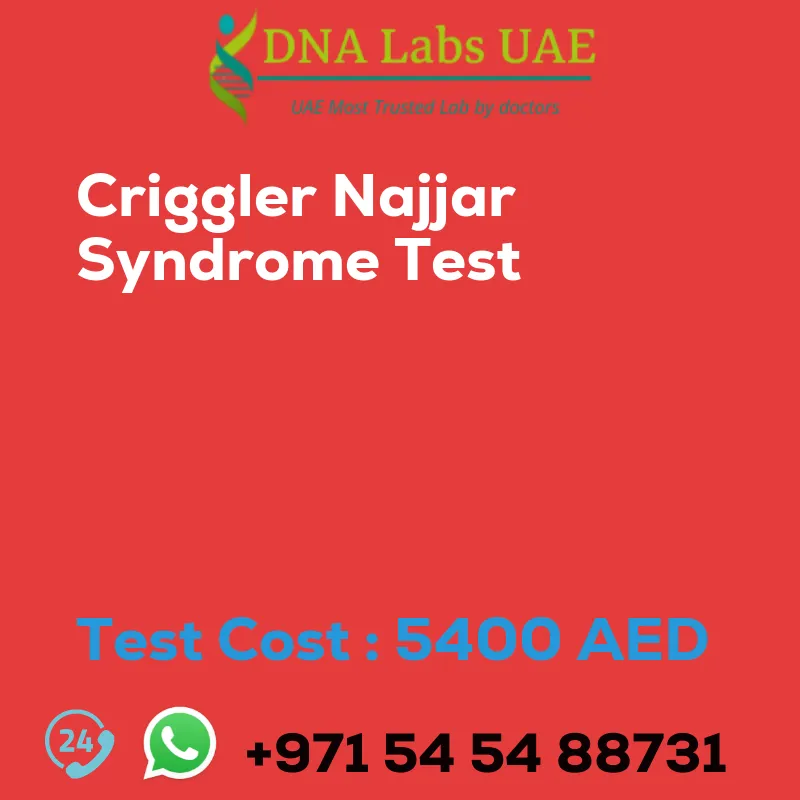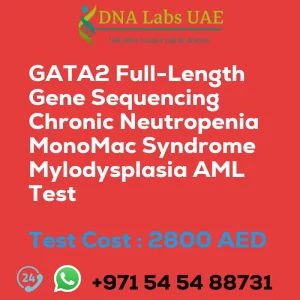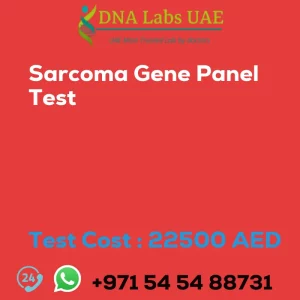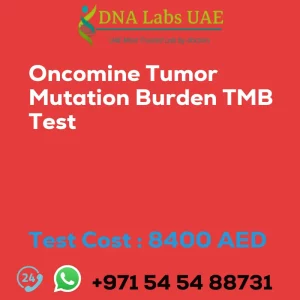Criggler Najjar Syndrome Test
Test Name: Criggler Najjar Syndrome Test
Components: EDTA Vacutainer (2ml)
Price: 5400.0 AED
Sample Condition: Peripheral Blood
Report Delivery: 7-8 days
Method: Sanger Sequencing
Test Type: Genetics
Doctor: Gynecologist
Test Department:
Pre Test Information: Criggler Najjar Syndrome can be done with a Doctor’s prescription. Prescription is not applicable for surgery and pregnancy cases or people planning to travel abroad.
Test Details
Criggler Najjar Syndrome (CNS) is a rare genetic disorder that affects the liver’s ability to process bilirubin, a substance produced when red blood cells break down. Bilirubin builds up in the blood and causes jaundice, a yellowing of the skin and eyes.
There are two types of CNS: type 1 and type 2. Type 1 is more severe and occurs when the liver is unable to process any bilirubin. This can lead to brain damage, seizures, and even death. Type 2 is less severe and occurs when the liver can process some bilirubin but not enough to prevent jaundice.
Treatment for CNS involves phototherapy, which uses special lights to break down bilirubin in the blood, and medication to help the liver process bilirubin. In severe cases, a liver transplant may be necessary.
CNS is an inherited disorder and is caused by mutations in the UGT1A1 gene. It is typically diagnosed in infancy or childhood. There is currently no cure for CNS, but with proper management, individuals with the condition can lead relatively normal lives.
| Test Name | Criggler Najjar Syndrome Test |
|---|---|
| Components | EDTA Vacutainer (2ml) |
| Price | 5400.0 AED |
| Sample Condition | Peripheral Blood |
| Report Delivery | 7-8 days |
| Method | Sanger Sequencing |
| Test type | Genetics |
| Doctor | Gynecologist |
| Test Department: | |
| Pre Test Information | Criggler Najjar Syndrome can be done with a Doctors prescription. Prescription is not applicable for surgery and pregnancy cases or people planing to travel abroad. |
| Test Details |
Criggler Najjar Syndrome (CNS) is a rare genetic disorder that affects the liver’s ability to process bilirubin, a substance produced when red blood cells break down. Bilirubin builds up in the blood and causes jaundice, a yellowing of the skin and eyes. There are two types of CNS: type 1 and type 2. Type 1 is more severe and occurs when the liver is unable to process any bilirubin. This can lead to brain damage, seizures, and even death. Type 2 is less severe and occurs when the liver can process some bilirubin but not enough to prevent jaundice. Treatment for CNS involves phototherapy, which uses special lights to break down bilirubin in the blood, and medication to help the liver process bilirubin. In severe cases, a liver transplant may be necessary. CNS is an inherited disorder and is caused by mutations in the UGT1A1 gene. It is typically diagnosed in infancy or childhood. There is currently no cure for CNS, but with proper management, individuals with the condition can lead relatively normal lives. |








